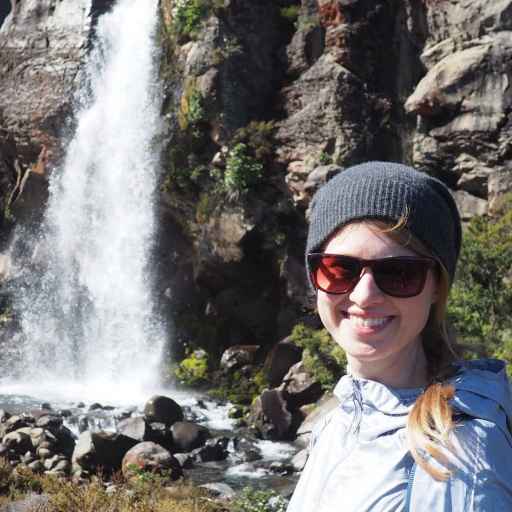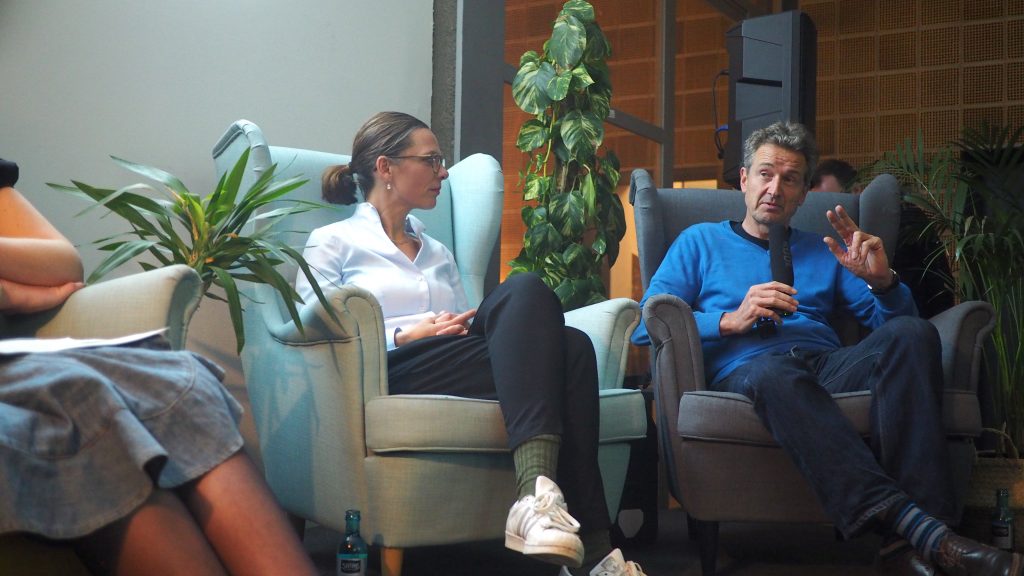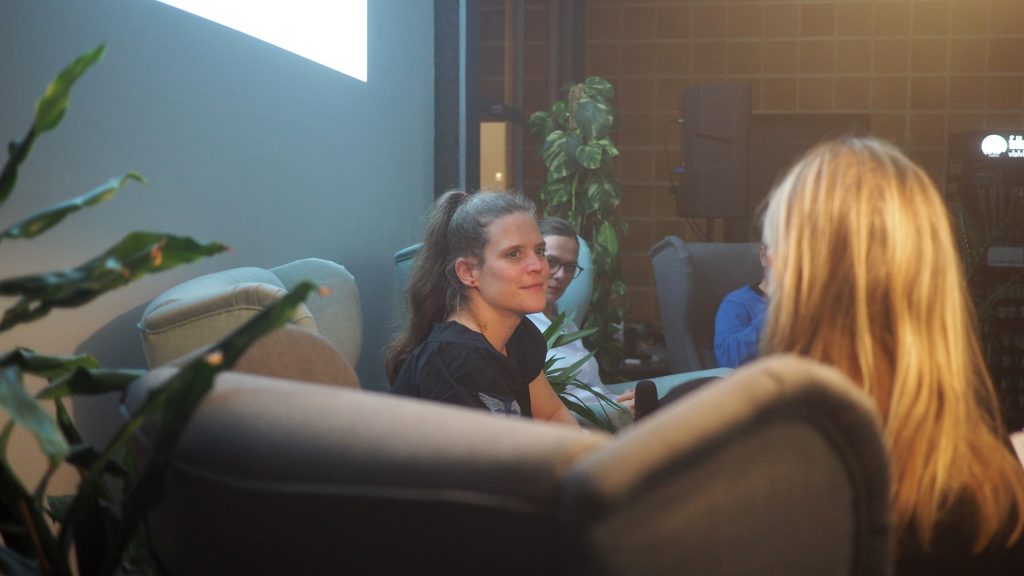Should we flight shame?
The Berlin community gathered last November to discuss the topic of responsible tourism with a panel of experts, sponsored by ITB Berlin.
 This event recap was written by Lisa Hübner. Lisa is a co-chapter leader at Travel Massive Berlin and a marketing & PR specialist for the tourism industry.
This event recap was written by Lisa Hübner. Lisa is a co-chapter leader at Travel Massive Berlin and a marketing & PR specialist for the tourism industry.
Responsible travel in times of flight shame
The Berlin community discussed the topic “Responsible travel in times of flight shame and co.” via a panel moderated by Rika Jean-Francois (CSR Commissioner at ITB Berlin), with our panelists:
- Michaela Thurau, Atmosfair
- Susana Ceron Baumann, ForumAndersReisen
- Christian Tänzler, visitBerlin
Global air traffic to increase fourfold by 2050
In an age where flying has become a lifestyle for many citizens of the Western hemisphere and air traffic is projected to increase fourfold by 2050. It could be argued that the industry needs to find solutions to decrease air traffic.

The panelists agreed that it would be most beneficial to organize solutions globally and were wondering why the airline industry, which is well connected via organizations such as IATA, has not found a solution yet.
The conversation often came back to the (German) government’s role in regards of the future of travel, consumer education and legal enforcement of industry standards.
On the topic of carbon offsetting, Michaela pointed out that there are different ways of calculating flight emissions and many new offsetting companies have been set up recently in this fast-growing space, perhaps pointing to a change in consumer attitude towards the impact of traveling and flying specifically.
Her company, Atmosfair, recently decided to stop offsetting short-haul flights and cruises, so as not to make it too easy for travelers if there are alternatives that are better for the environment – since offsetting is always the second best solution.
International tour companies
As a tour operator with trips to destinations worldwide, Ventura Travel has a CSR checklist for all their suppliers to measure their current status as well as their progress over time. This checklist focuses on economic, ecological and sustainability aspects.

In addition, they have set minimum durations for their long-haul trips, such as for Costa Rica, where they do not sell trips that are less than two weeks long.
Here are some other tips from Susana for traveling more sustainably:
- Check the company’s core values for aspects related to sustainability
- Travel in small groups
- Does most of the money I pay for the trip stay in the destination?
- Make sure the tour company offers more that one trip per destination
- Ask about CO2 compensation
- Do you need to fly to where you’re going? (Are there alternative modes of transport for leisure trips or, for business, could it be a web conference call instead?)
It was pointed out that sustainable traveling does not have to be more expensive than a “mainstream” trip, e.g. by staying with local families.
Problems that were seen in the field of sustainable travel are a jungle of certifications and the fact that there are currently no requirements or standards for CSR-related topics.
As a solution, it was suggested to make it a rule that companies follow a certain minimum standard, since otherwise the cheapest supplier will win.
Another challenge mentioned was that lots of clients actually for domestic or short-haul tours, showing a strong demand, which, however, is not met with enough offers, marketing and communication.
Sustainable travel in Berlin
Meanwhile, in Berlin, 250,000 people depend on tourism.
visitBerlin see it as their role to educate tourism actors in the city on topics like CSR and sustainability in format such as round tables.
They have also founded a platform for sustainable and socially responsible meetings, which, for example, offers alternative meeting locations in public schools to support the local community.
Internally, visitBerlin has a guideline for their staff not to travel within Germany by plane but to use trains or buses instead.
Final thoughts
Finishing up, the panelists agreed that the beginning of every change in behavior is awareness, which can be achieved through education. So we shouldn’t make traveling unsexy but rather find a way to make responsible travel sexy.
In the end, change has to start with each of us, in our daily lives and each of us needs to be responsible for their own choices and actions.

While tourism is not the only industry that needs to change, maybe we can be a front player in promoting and achieving sustainability.
This event was organized by Lydia Band and Lisa Hübner with the help of Rika Jean-Francois, Teresa Baumgarten and the ITB team.
Watch the live stream
The event was live streamed on Facebook — check out the video below:
Sustainable Tourism Talk with ITB Berlin @ Berlin Travel Massive
Sustainable Tourism Talk with ITB Berlin @ Berlin Travel Massive
Posted by Travel Massive on Wednesday, November 13, 2019
Many thanks to our moderator and panelists for sharing their insights!
Join the Berlin chapter to learn more about their upcoming events.
👋 This article is archived. Take a look at our new website.